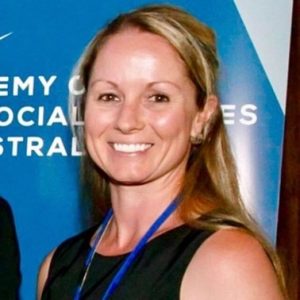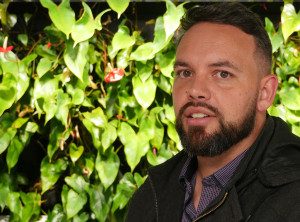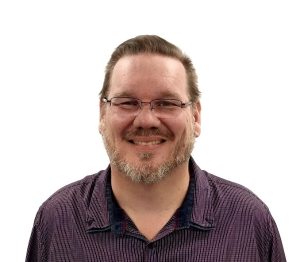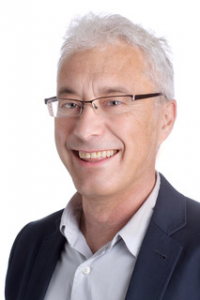AACBT 44th National Conference
Keynote and Invited speakers
(click on a the link to jump to that speaker!)
We are excited to be hosting our international keynote speakers:
- Professor Emily Holmes
- Professor Tim Dalgleish
We also have some great invited speakers:
And we will have a special guest, with a Master Clinician Session:
- Professor Mark Dadds
Uppsala University, Sweden

Keynote address – plenary session (60 min)
Just imagine: using mental imagery within CBT
We can think in words and we can think in mental imagery. Both are important for CBT, though historically CBT focuses more on words. Today we will explore why imagery is so interesting too.
Mental imagery has a more powerful impact on emotion than thinking in words. Mental imagery allows us to time travel, having a powerful impact on our emotions, motivation and behaviour. Intrusive image-based memories can “flash backwards” to past trauma. Mental imagery can “flash forwards” to the future, such as in suicidal thinking or goals in hypomania. Although images can seem fleeting and elusive, our research methods to investigate imagery are advancing and can offer insights to improve interventions.
MRC Cognition and Brain Sciences Unit, University of Cambridge, United Kingdom

Keynote address – plenary session (60 min)
Fragile minds in a scary world: post-traumatic stress in children and young people from preschool to adolescence
PTSD with a focus on children and young people.
UNSW – Sydney

Plenary address (45 min)
Get in the back seat, I am driving. Translating research into action.
Singular interventions that focus on quantifying Indigenous Australians Mental health & inequalities, as opposed to addressing the inequities that cause them, is a key & much needed paradigm shift to closing the gap in mental health. By developing a program of research that scaffolds and complements the other will provide a more holistic shift in the way Indigenous mental health research is approached. To address this significant national issue, this research program will establish innovative and culturally appropriate approaches that engage Indigenous communities, particularly Indigenous youth and health professionals in co-design and self-determination, to ensure successful translation of research findings into the community setting that lead to improvements to the mental health of young Indigenous Australians.
- Case Study1: Prevalence of CMD study
- Case Study 2: I-ASIST and Cherbourg example
- Case Study 3: The MOB Van
Associate Professor Melissa Day
University of Queensland

Plenary address (45 min)
Chronic pain: we can do better
Which treatment, delivered by whom, for which client, is most effective under what circumstances? These questions have been asked for over five decades; let’s discuss why the answers remain elusive.
Psychological interventions for chronic pain that are based on cognitive, mindfulness, acceptance, and behavioural principles have been shown to reduce pain intensity and improve mood and function. However, effect sizes tend to be modest on average, with a great deal of individual variability in response to treatment. In an effort to boost these effect sizes, the past several decades have seen an increased interest in examining the mechanisms of such treatments. That is, determining how (mediators) and for whom (moderators) meaningful treatment-related change is engendered.
Schema Therapy Sydney

Plenary session (45 min)
Advances in the practice of schema therapy in 2024 and beyond: trends, opportunities, and challenges
While CBT enjoys strong empirical support across a large range of psychopathology, a significant proportion of patients show poor treatment response. In many cases, this poor response can be argued to occur due to patient characteristics/traits which make them poor candidates for standard CBT protocols. Recent research has confirmed the status of Schema Therapy as an evidence-based treatment for personality disorders using ‘extended schema mode conceptualisations’.
Rob will provide a brief outline of recent advances with schema mode formulations.
Benchmark Psychology

Plenary session (45 min)
Deliberate practice – the pathway to ongoing improvement in a changing landscape
Are you a better therapist today that you were at the start of your career?
While it depends on how you define “better”, the null hypothesis seems to be holding. The largest studies that have tracked the effectiveness of psychologists over the course of their career have consistently failed to show evidence of improvement, with one of the largest studies actually finding significant decline. Despite the evidence being clear for decades that therapy type contributes only a small amount to the overall change process, each year clinicians invest thousands of dollars and hundreds of hours into learning the “latest” in therapy innovation.
Deliberate practice takes a different approach, rather than learning a new technique. The goal is to learn how to use what you already know more effectively. Early research on deliberate practice shows slow but sustained improvement in therapy outcomes. This session will cover the theoretical basics, while also giving some practical tools to get started.
Aaron is an experienced and engaging speaker and has many insights to share, especially in relation to private and clinical practice.
Sydney University

Master Clinician Session (90 min)
Beyond the manual; fundamental ideas and strategies for working with families and child mental health
You’ve all read the manuals on how to deliver parenting support for child conduct problems. Now get the inside story; how to make these interventions work in the real world.
This will be a practical workshop in which Professor Mark Dadds shares ideas and strategies for full engaging families into mental health interventions for young children, and empowering them to change by combining the best of our science with their individual needs. The session will involve a combination of theory, case examples, role plays, and practical demonstrations of skills.

